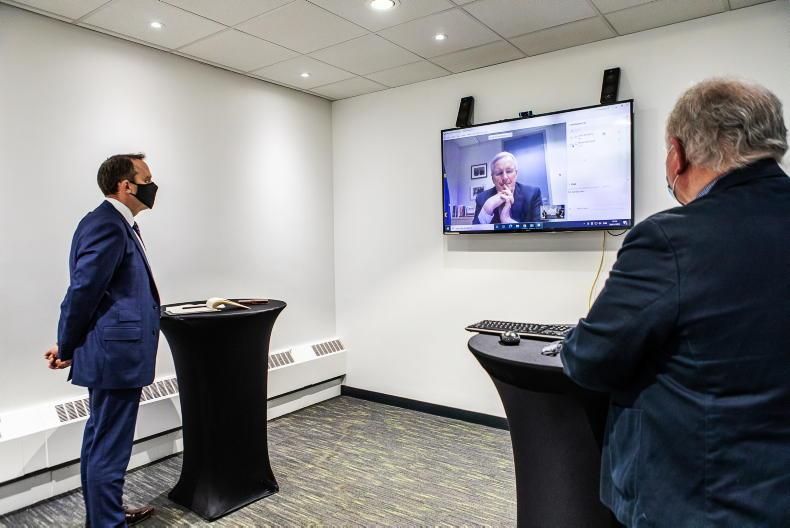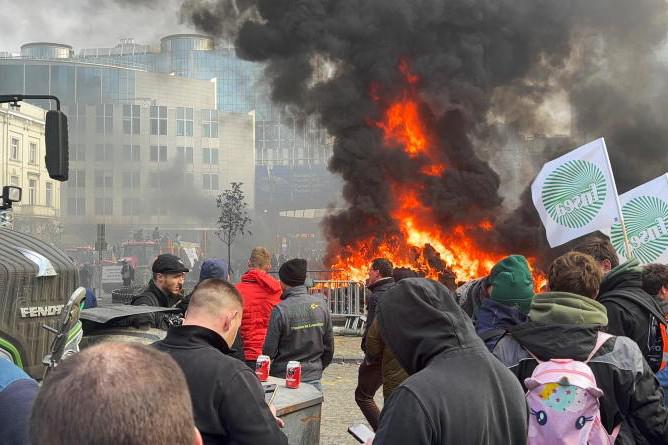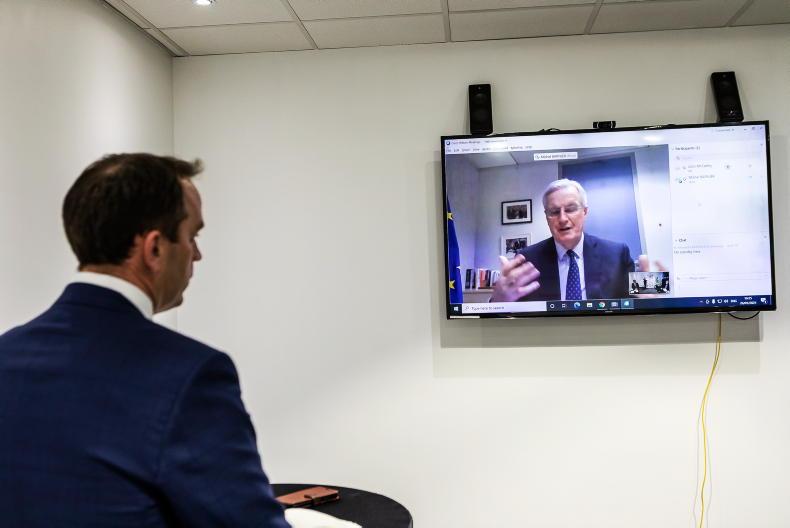In an exclusive interview with the Irish Farmers Journal, EU chief Brexit negotiator Michel Barnier made no attempt to sugarcoat the impact Brexit would have, not just for farmers but for trade in the EU and UK in general.
He said the deal was about a divorce, which is a lose-lose situation for both parties. He quoted Theresa May, saying that “Brexit means Brexit”, and that “frictionless trade was now a thing of the past for everyone and the situation cannot be the same as it was before”.
Irish agriculture
Barnier recognised the impact of Brexit on Ireland and Irish agriculture because of our “proximity and common history”. However, he emphasised the solidarity of the EU with Ireland, pointing to the €1bn from the €5bn Brexit Adjustment Reserve fund that had been allocated to Ireland. When pressed on how he thought this should be spent, he wouldn’t be drawn, saying this was for the Irish Government to use in the most efficient way.
When asked about what the EU can learn about engaging with the farming community from Brexit, given that many UK farmers voted for it, Barnier said “there were many lessons to draw from Brexit and we have to listen carefully and understand criticism of Brussels” but that a strong Common Agricultural Policy (CAP) will be in place for farmers in the EU.
UK trade deals
On the issue of the UK making its own trade deals, Barnier said the UK it can do what it likes for its own market but, holding up a copy of the treaty, added that “we have to implement carefully and precisely this treaty”. He made it clear that the UK could not export product imported from other third countries to the EU tariff-free, but recognised that the UK would be free to import beef or sheepmeat for consumption in the UK and could continue to export its domestic production to the EU.
Barnier emphasised all agri-food products coming from the UK into the EU will need to be checked and controlled at the EU border. “So yes, the UK can continue to export its domestic production but there will be additional burdens for them.” He also said the EU would have to monitor and evaluate the effect of this in the short, medium and long term.
Implementation, not renegotiation
Asked what flexibility the Partnership Council had to make changes to the treaty, Barnier said its role was to “implement the treaty correctly and precisely, not to renegotiate it.” On a timeline for the Partnership Council, he said they were waiting for the UK nomination but as soon as possible is the target.
Landbridge
On the difficulties with Irish trucks using the UK landbridge, Barnier said major EU entry points are ready for Irish trucks and the UK membership of the common transit convention was useful. However, he still had concerns about the readiness of some UK ports. He recognised that Irish exporters have to adapt to a new situation but that the Commission was committed to ensuring the best co-ordination possible among member states and that the direct ferry was also a possibility.
Future for Irish farmers
Asked if he could he see a future for Irish farmers despite the difficulties caused by the UK being no longer part of the EU single market and customs area, Barnier said this was an issue not just for Irish farmers but French, Belgian, Polish and farmers across the EU. He reiterated the importance of CAP and said the next few years will show how important it is for farmer security. He said it will support rural areas, provide quality products and maintain EU food sovereignty.
He concluded by referring to how well he considered Irish farmers were represented, speaking of the professionalism of Irish farm organisations he has met in Brussels, Dublin and indeed Belfast. “There is a future for Irish farmers but we always have to be vigilant, to monitor the [effects of] Brexit and this treaty in the short and medium term and use all the tools available to support farmers.”









SHARING OPTIONS